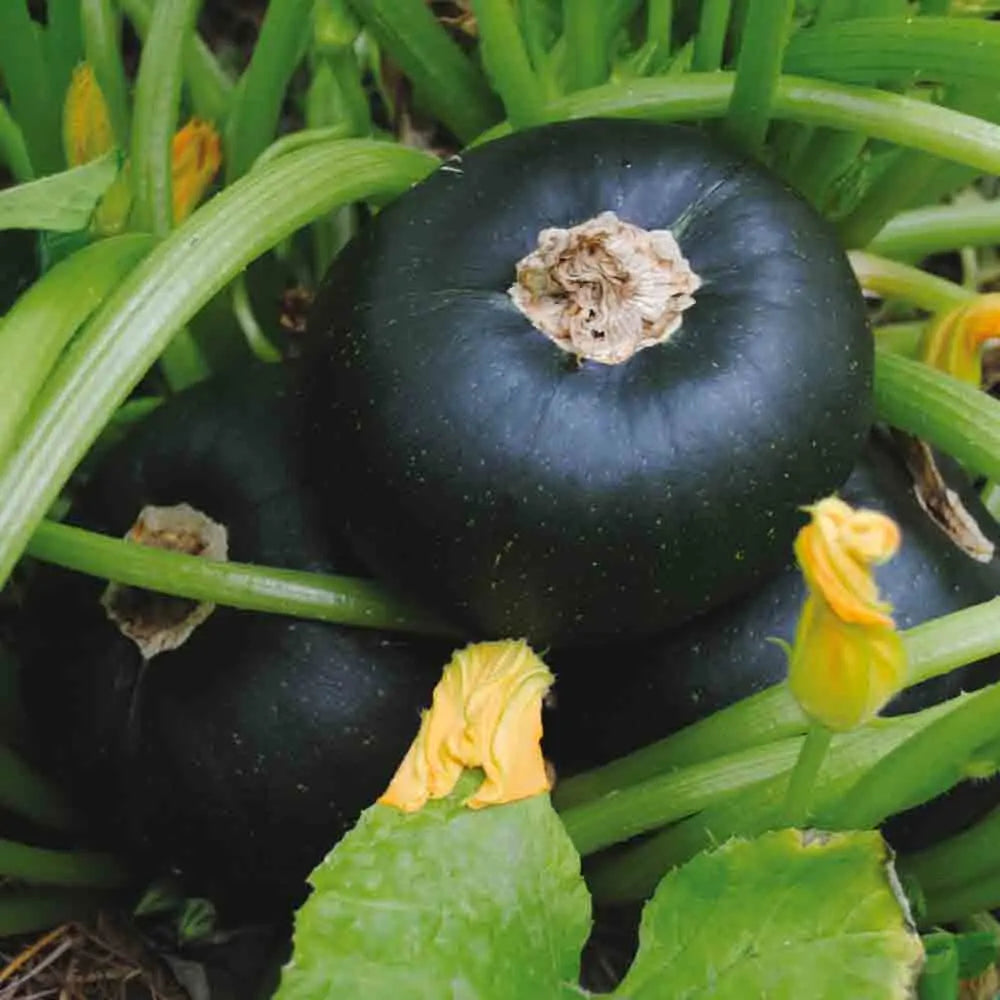ZUCCHINI TONDO DI PIACENZA AB
Cucurbita pepo
The Tondo di Piacenza zucchini is a traditional early, vigorous Italian variety with dark green, almost perfectly round fruits with firm, flavorful flesh. It can be harvested young, about the size of a golf ball, to be eaten whole, or about the size of a tennis ball, to be sliced or stuffed.
Successful sowing of zucchini Tondo di Piacenza
Sowing: in April, in pots in a bright location (temperature 12°C minimum, the seeds need warmth to germinate), place the seeds on their edges. Be careful when watering; you will need to keep the soil moist with a sprayer but not excessively so as not to rot the seed. Place your pots near a light source.
Cultivation of zucchini Tondo di Piacenza
Transplant in a sunny position in mid-May, 1 m apart in all directions for non-running varieties. Watering. Adding compost is recommended.
Pinch the stems to stimulate development.
Hoe and weed. Mulch the base to limit weed growth and preserve moisture. Water at the base in summer without wetting the foliage.
Good associations
Avoid placing it next to potatoes. However, it will appreciate the proximity of beans and cabbage.
My zucchini plant is not producing flowers or fruit.
This is a common problem encountered in many plants in the Cucurbitaceae family.
High temperatures: in fact, it is very likely that the flowers borne by the plants are only male flowers (female flowers are distinguished by the presence of a swelling at the base, resembling a very young fruit). The high temperatures have affected the formation of female flowers and the quality of the pollen in the male flowers. Despite the presence of pollinating insects, there are therefore no fruits.
Lack of pollination: Pollination is carried out by pollinating insects moving from a male flower to a female flower. If your garden lacks these, then pollination and therefore fruiting will not occur. Attract pollinators near your cucurbit crops by sowing floral mixes, for example.
Harvesting zucchini
2 months after sowing. The younger a zucchini is harvested, the less bitter it will be, unlike zucchini that are allowed to grow enormous.









